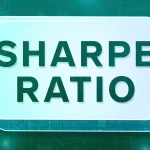
A finance lease is a form of lease in which the financial institution, or finance company, holds legal ownership of the asset for the duration of the lease. The lessee retains operational control of the asset and shares in the economic risks and returns of the change in valuation of the underlying asset. Unlike a traditional lease, which requires upfront payments, a finance lease allows for ongoing monthly payments. However, the economic risk and return on the underlying asset are shared by both the lessee and the finance company.
A finance lease is an alternative to buying a property and allows a business to make regular payments and enjoy the economic benefits of owning the property. The business can enjoy economic benefits from the asset without incurring large initial expenses and up-front costs. Finance leases have several advantages over other types of leases, including low up-front costs and no closing costs. For example, a finance lease can reduce the overall cost of purchasing a property, which can result in lower operating costs.
In order to qualify for a finance lease, a lessor must meet a certain number of criteria. The lessor must first have a Medium-Term Master Guarantee Agreement (MTA) in place to secure the lease. It must also have the ability to purchase the asset at the end of the lease. Lastly, the lease must meet a minimum term of 75% of the asset’s useful life. The lessor generally submits an application for a specific finance lease transaction.
A finance lease can be used in many different industries. It is often used to obtain a piece of expensive equipment and preserve the company’s cash flow. By allowing a lessee to pay rent for a period of time, the lessor can avoid large lump sum payments for equipment they need. In addition, with a finance lease, the lessee can choose to shift the cost of tax benefits from the lessor to the lessee. This type of arrangement is complicated, but can be beneficial if the company is able to shift the costs of taxes to the lessee.
A finance lease is a form of leasing that allows a lessee to purchase an asset at a low price. Because the lease is long-term, it is not cancellable, so the lessee will bear the risk of loss if the lease is cancelled before the end. Once the lease ends, the lessee becomes the owner of the asset and can claim depreciation and finance charges. A finance lease can be used for a variety of situations, from purchasing an asset to buying a property.
The key distinction between a finance lease and an operating lease is the length of the lease. A finance lease is virtually guaranteed to be longer than an operating lease. In addition, the lease term must be a substantial part of the economic life of the leased asset. It is possible for a finance lease to last for over 10 years. A finance lease will last for more than 7.5 years, while an operating lease has a shorter duration. It is also a better option for a small business.









